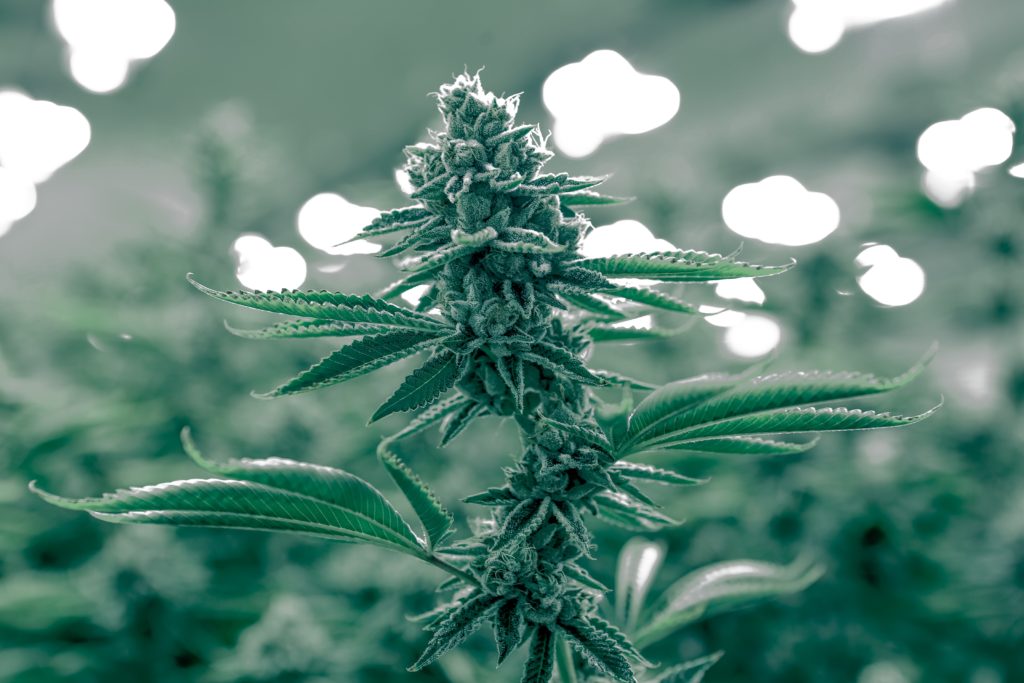On-farm sales are an increasingly attractive area of the cannabis business. Besides offering cannabis producers another outlet through which they can sell their product, it can also be a powerful tool for building brand loyalty. But, as with all things cannabis, regulatory hurdles stand in the way. As of April, only two of the nine applications for on-farm sales had been approved.
Canadian cannabis growers interested in on-farm sales


On-farm sales involve bringing all stages of production, from seeding to sale, together in one location. It is a practice getting increasing attention in Canada, where some provinces have already piloted this practice. Others are also following suit.
Saskatchewan has allowed this type of sale, although there are no on-premise stores yet. In British Columbia, companies are planning to launch similar on-farm sales operations starting in 2022. And in Ontario, the first licensed producer to sell cannabis products direct from the farm is now operating. Several others are also looking to follow suit and offer on-farm sales by the end of the year.
Regulatory hurdles hamper on-farm sales progress
However, before Canadian companies can move to on-farm sales models, they must first have a retail operator’s license, a retail authorization and pass several inspections.
As of mid-April, the Alcohol and Gaming Commission of Ontario has received 14 applications for retail operator’s licenses. Six of these were approved: Thrive, Tweed Inc, Dykstra Greenhouses, Medz Cannabis Inc, Muskoka Grown Ltd. and Level Up Infusions.
Of the nine applications for on-farm sales, only two companies received approval from authorities: Thrive and Medz.
Not all cannabis producers ready to move forward
Canopy Growth, which owns the Tweed brand, wanted to move to on-farm sales at its Smiths Falls facility, but decided to put its plan on hold until later this year.
But there are others who want to move forward. They believe these site-based purchasing programs will allow consumers to buy fresher cannabis more quickly, especially in rural areas where the nearest dispensary may be a considerable distance away.
On-farm sales big opportunity for growing brand loyalty
The chance to build brand loyalty and product awareness is a huge opportunity for cannabis companies, says Denis Gertler, senior regulatory advisor at the consulting firm CannDelta.
A June 2020 survey of 3,000 Canadian cannabis consumers from research firm Brightfield Group indicated that these factors weighed on brand recognition. The survey found that most cannabis brands were known to only 1-15% of those surveyed. No brand had an awareness rate higher than 41%.
Selling at the point of production through on-farm sales can solve this problem because “it’s an opportunity for a savvy company to promote a brand,” as craft brewers have done, says Gertler, who acknowledges that this model is not without its challenges.
“Distilleries are often in these types of areas. A lot of them that sell at the production site are essentially farmers. However, alcohol is not as stigmatized as cannabis,” he notes.
Robyn Rabinovich, Thrive’s vice president of strategic initiatives, believes the company can build a customer base similar to that of wineries. “These consumers become the biggest advocates for a brand after learning more about the production process,” she says.
Williams Lake First Nation is watching closely
The Williams Lake First Nation community, six hours from Vancouver, began building a cultivation facility and on-farm sales outlet under the name Sugar Cane Cannabis after signing an agreement with British Columbia.
Negotiations were tough, but the provincial government finally relented.
“They saw this as a real opportunity, a way for people who are running small businesses, who want to transition to the legitimate market to make them viable,” says Kirk Dressler, the community’s director of legal and corporate services.
Chief Willie Sellers expects this will create jobs and boost tourism in his territory.
“Everyone who comes into our store will be able to hear about this journey we’ve taken and how we grow our cannabis. It’s exciting and fun to think about this cutting-edge stuff. “
—
(Featured image by Ryan Lange via Unsplash)
DISCLAIMER: This article was written by a third party contributor and does not reflect the opinion of Hemp.im, its management, staff or its associates. Please review our disclaimer for more information.
This article may include forward-looking statements. These forward-looking statements generally are identified by the words “believe,” “project,” “estimate,” “become,” “plan,” “will,” and similar expressions. These forward-looking statements involve known and unknown risks as well as uncertainties, including those discussed in the following cautionary statements and elsewhere in this article and on this site. Although the Company may believe that its expectations are based on reasonable assumptions, the actual results that the Company may achieve may differ materially from any forward-looking statements, which reflect the opinions of the management of the Company only as of the date hereof. Additionally, please make sure to read these important disclosures.
First published in La Presse, a third-party contributor translated and adapted the article from the original. In case of discrepancy, the original will prevail.
Although we made reasonable efforts to provide accurate translations, some parts may be incorrect. Hemp.im assumes no responsibility for errors, omissions or ambiguities in the translations provided on this website. Any person or entity relying on translated content does so at their own risk. Hemp.im is not responsible for losses caused by such reliance on the accuracy or reliability of translated information. If you wish to report an error or inaccuracy in the translation, we encourage you to contact us.



Comments are closed for this post.